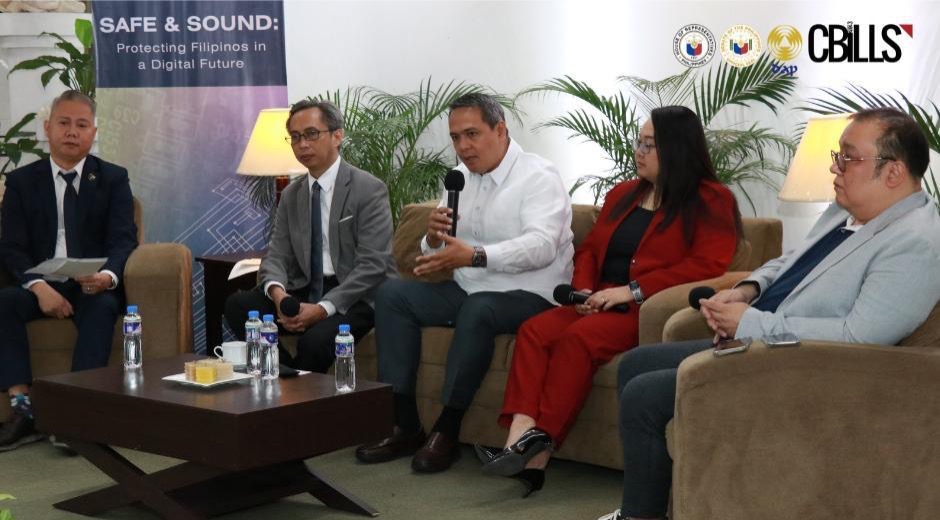
In the age of digital transformation, the Philippines faces an unprecedented challenge: the relentless onslaught of cyber threats. With the recently reported cyber attacks, the assertion of Engineer Pierre Tito Galla of the United States Agency for International Development (USAID) has never been more accurate: “[Cyber] breaches or incidents are not a matter of if, but when.†These challenges are particularly alarming for institutions holding vast private data, such as those in banking and finance, and public-sector agencies entrusted with high-risk confidential information (HRCI).
In 2022, the Philippines experienced a 57.4% surge in ransomware attacks, as the Philippine News Agency reported. These attacks have emerged as the weapon of choice for cybercriminals, targeting both private and public sectors. Data theft, driven by ransomware attacks, has now become a means of extortion in the country, which places the Philippines at number two in Asia in terms of being targeted by cyberattacks.
Cybersecurity serves as a risk mitigation effort for public-sector organizations (PSOs) as it can help ensure business continuity and minimize downtime. PSOs are entrusted with different levels of data, requiring different magnitudes of security in the same breath. The data is the purpose of many initiatives towards productivity through digitalization; cybersecurity is indispensable toward these efforts. By prioritizing cybersecurity, PSOs enhance their ability to maintain business continuity, minimize downtime, and optimize resource allocation, leading to more effective public service delivery.
Solidifying Cybersecurity in CBILLS Thursday Talks
On 21 September 2023, the Development Academy of the Philippines (DAP), through its Center for Governance–Policy Research Office (CFG-PRO), held the fifth and final installment of the 2023 Thursday Talks Lecture Series under the Capability Building on Innovative Leadership for Legislative Staff (CBILLS) program entitled “Safe and Sound: Protecting Filipinos in a Digital Future.†The event was held at the Virata Hall of DAP in Pasig City and streamed online.
Officers and staff from the Senate of the Philippines, House of Representatives, and DAP attended the event.
Atty. Richard Leo M. Baldueza, Committee Secretary on Banks & Financial Intermediaries of the House of Representatives, moderated the discussions, sharing his insights into cybersecurity within the context of e-governance and highlighting actual cases in the finance sector.
Engineer Pierre Tito Galla delved into the fundamentals of cybersecurity, the current state of Philippine cybersecurity, and the global shortage of cybersecurity professionals. He also tackled USAID’s Better Access and Connectivity (BEACON) Project — a five-year project aimed at promoting economic growth through better information and communications technology (ICT) and helping bridge the digital divide in the Philippines.
Tirso Raymond Gutierrez, Chief of Staff of the Department of Information and Communications Technology, outlined the citizen-centric features of the proposed E-Governance Act. This legislation centralizes payments and government transactions, ushering in a more secure and efficient era of governance.
Securing the Digital Financial Landscape
Director Melchor Plabasan of the Bangko Sentral ng Pilipinas highlighted the transformative impact of digital payment portals and electronic wallets, expanding financial inclusion among lower to lower-middle-income groups. However, he also voiced concerns about the surge in data breaches from phishing and other cybercriminal tactics targeting civilian accounts.
Atty. Christine Lovely E. Red-Allego, Assistant Vice President of the Bank of the Philippine Islands, expressed enthusiasm for the proposed E-Governance Act, foreseeing its potential to bolster e-banking initiatives. She also echoed the alarming number of cyberattacks on customers’ online accounts.
If you want to see the full session, click here.
Key Takeaways:
- The public sector’s productivity efforts demand the presence of cybersecurity in risk mitigation and management. With less time spent on recovering from cyberattacks, there will be more time and manpower dedicated to ensuring the initiatives, in the form of projects or programs, run smoothly.
- The panel discussions unearthed several nuances in the Philippines’ cybersecurity landscape. Notably, the nation grapples with a growing interest in cybersecurity, yet it contends that more professionals are needed. Furthermore, the competitiveness of the labor sector for cybersecurity experts remains a challenge, with remuneration being a significant factor.
- Critical information protection has long been a pivotal concern of cybersecurity since massive malware attacks have threatened or succeeded in compromising data. The Philippines’ situation in the matter has yet to actualize fully.
- Transforming towards a digitalized society is a shared responsibility. As part of recovery in the new normal, Filipinos should be fully aware of the cyber risks to protect cyberspace from attacks, phishing schemes, malicious links, and scams, just as much as the government must be highly critical of “when†cyberattacks can happen.
- With digital banking and online or e-wallets, cybersecurity threats have been more prominent and provoking to hackers. The finance and banking sector must partner with the government to protect the constituents’ money and their HRCI.
